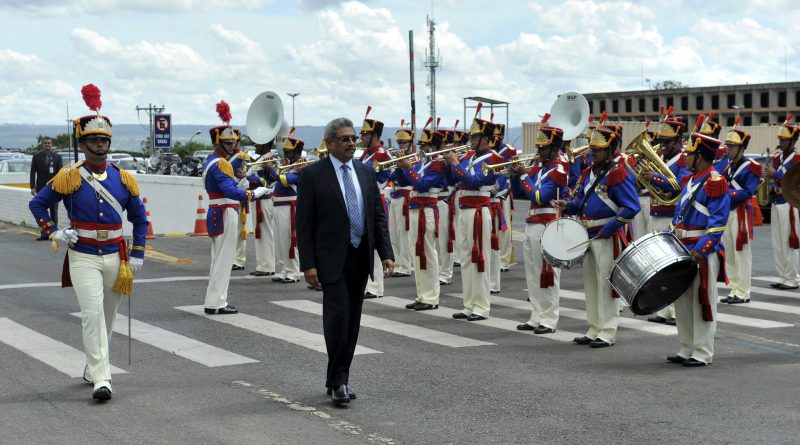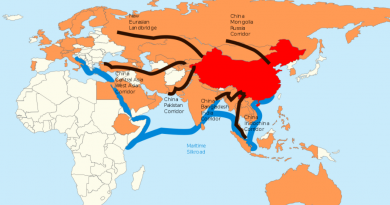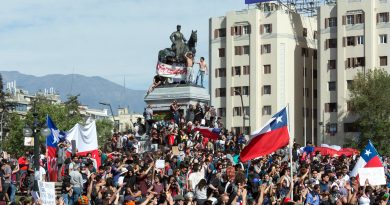Gotabaya Rajapaksa Elected as President of Sri Lanka
Isha Ayesha
Staff Writer
Sri Lanka’s former defense chief Gotabaya Rajapaksa won the country’s presidential election on Sunday, November 17 with 52.25 percent of the vote, reports BBC News.
Rajapaksa, 70, is the head of the newly formed Sri Lanka Podujana Peramuna and a member of one of the most influential political families in the country. The president is notably the brother of Mahinda Rajapaksa, the former two-time president of the country, notes UPI. The majority of support for Rajapaksa came from ethnically-Sinhalese majority areas.
Sajith Premadasa, Rajapaksa’s main opponent, had the support of many of the country’s ethnic minorities yet only managed to garner 41.99 percent of the vote and conceded the race, says CNN.
“It is my privilege to honour the people’s decision and congratulate Mr. Gotabaya Rajapaksa on his election,” Premadasa wrote on Twitter. “I am grateful to our citizens who voted for me. I am humbled that you placed your faith in me. Your support has been a fountain of strength throughout my political career.”
Rajapaksa’s primary concerns are national security and the restoration of the economy, says Keheliya Rambukwella, a spokesman for Rajapaksa’s party.
Rajapaksa’s emphasis on protection of national security comes in the light of the Easter Sunday attacks earlier in the year in which radical Islamist extremists bombed churches and hotels, killing around 250 people.
Rajapaksa’s election may seem like a promising prospect for the country against the backdrop of Sri Lanka’s slumping economy – the tourism sector, which accounted for a major part of the economy, took a huge blow in light of the attacks.
However, the ethnic minorities in Sri Lanka are not so elated as they welcome their new president. This can be attributed to the roles the Rajapaksa brothers played during the ending of the civil war in Sri Lanka in 2009.
According to The Guardian, Mahinda Rajapaksa, who was the president then, appointed his brother Gotabaya as the defense minister, who oversaw the defeat of the separatist Tamil Tiger rebels, ending a decades-long civil war that cost at least 40,000 lives. The then-de facto head of the military, Gotabaya allegedly authorized torture, extrajudicial killings, rape, abductions and disappearances of Tamil separatists, journalists and political opponents. He even had government-endorsed ‘death squads,’ though he vehemently denied the charges.
As the Tamil Guardian notes, Gotabaya also had two civil lawsuits against him in the United States, one filed by a Tamil torture survivor who was illegally detained and tortured under his orders and another for extrajudicial killing, filed by the daughter of Lasantha Wickrematunga, an anti-establishment newspaper editor. Rajapaksa’s authoritarian leanings, militaristic approach, and volatile temper earned him the nickname, “The Terminator” by his own family.
However, it was this ruthless tendency that made voters view Rajapaksa as someone who would be capable to take on terrorism, and voters began to view him as someone who could have possibly prevented the Easter attacks. This was something Rajapaksa understood, as well and capitalized on during his campaign.
Even though the Sinhalese celebrate his election, the country’s Muslim minorities that suffered through great discrimination and violence after the bombings are scared about such an authoritarian ruler who promoted the Sinhala-Buddhist interests in his campaign.
“It is all our worst fears realized,” said Hilmy Ahmed, the vice-president of the Sri Lanka Muslim Council in a quote recorded by The Guardian. “Sri Lanka is totally polarized by this result and we can see through the votes there is now a clear divide between the Sinhala Buddhist majority and the minorities. It is a huge challenge to see how the country could be united.”
Even though the Muslim and Tamil communities continue to express their reservations, Rajapaksa promises to promote unity in his polarized country: “It is my duty to serve all Sri Lankans without racial or religious discrimination,” he said to the BBC. “I promise to discharge my duties in a fair manner.”
In regard to foreign policy, Rajapaksa plans for Sri Lanka to be less involved in the world. “We will remain neutral in our foreign relations and stay out of any conflict of world powers,” Rajapaksa said to The Hindu.
According to Foreign Policy, observers must still consider Sri Lanka’s close ties with China back in Mahinda Rajapaksa’s presidency. China started to fund many infrastructure projects in Sri Lanka, and as a result the government accumulated mountains of debt. Sri Lanka had to repay China with land and a port after Mahinda was voted out of his position in 2017. It then returned to India as an ally and sought economic support. It is now pivotal for the second Rajapaksa presidency to determine whether it wants to pursue stronger ties with China now instead of India, as India’s concern for its Tamil migrant minority could clash with the government’s Sinhalese-Buddhist interests.




